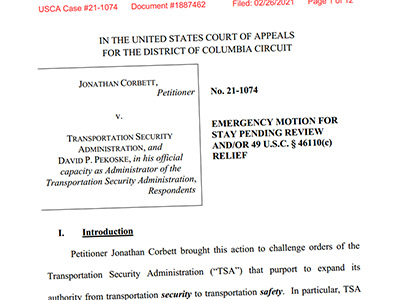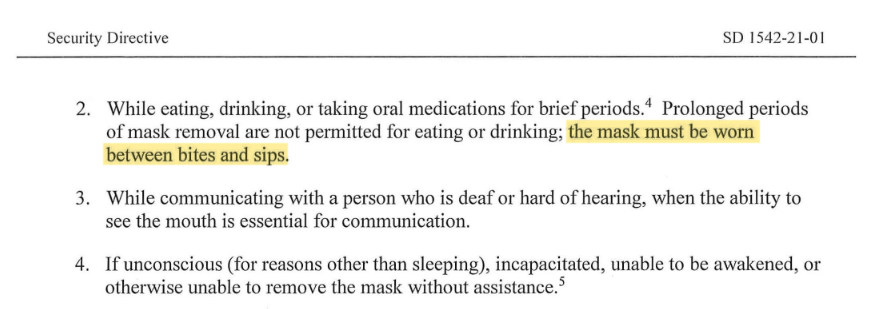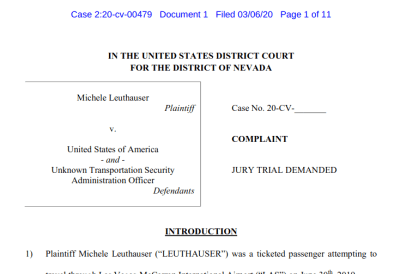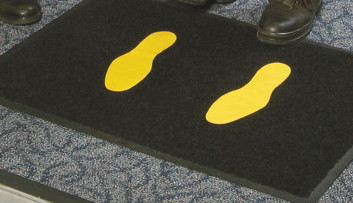I am approached by potential clients multiple times per week describing pat-downs gone wrong. Sometimes, the case is black and white: “They strip searched me in the back room” is a scenario where there is no argument that the screeners were “just doing their jobs.” Often times, however, the situation they describe is abusive but close enough to TSA’s “legitimate” procedure that proving it crossed the line may be nearly impossible. These include allegations that the pat-down was done in a way to cause pain (generally, by hitting the groin area), or that screeners used the pat-down as an opportunity to grope rather than search. In these cases, I generally advise clients to get the CCTV video of the incident.
“You can do that? How?”
Every state in the country, plus the federal government, has some variety of public records law. They may call it a “Freedom of Information” act or law (FOIA or FOIL), a “Sunshine” law, or merely a “Public Records Law,” but the idea is that members of the public have some right to request records from the government. Records include pretty much anything, from paper documents to e-mails to video. But, keep in mind that every state has a different version of a public records law, so the steps below are the general process in many states; an attorney can help you confirm that you’re doing what’s right for your state.
 Step 1: Find the Video Owner. Security cameras at the airport are typically not owned or operated by TSA. The footage generally belongs to the airport authority, which is most commonly the county in which the airport is located. Google for “[airport name] public records request” and you will find that most airports have a process, or at least an e-mail address, for submitting public records requests. If so, follow their procedure. If not, you may have to dig around the county’s Web site, or call the county and ask.
Step 1: Find the Video Owner. Security cameras at the airport are typically not owned or operated by TSA. The footage generally belongs to the airport authority, which is most commonly the county in which the airport is located. Google for “[airport name] public records request” and you will find that most airports have a process, or at least an e-mail address, for submitting public records requests. If so, follow their procedure. If not, you may have to dig around the county’s Web site, or call the county and ask.
Step 2: Write Your Request. Public records requests generally don’t have to adhere to some kind of form: you simply ask for what you want and tell them how to get it to you. What you want to make sure you do is describe the video you want in a way that is specific enough that they can find it. Example: “All video showing a TSA pat-down of a blonde woman, 50 years old, 5’3″, 150 lbs., wearing a pink shirt and white pants, at XYZ airport, Terminal 1, South Checkpoint, second security lane from the left, on 1/1/2021, between 10:10 AM and 10:30AM.”
Step 3: Wait. Send in your request and set a reminder on your calendar for 30 days, and don’t think about it again until then. Sometimes you’ll have your records in a week, other times it takes much longer, but you cannot speed it up by contacting them every few days. If you don’t have your request in 30 days, then consider your request ignored.
Step 4: Deal with Pushback. Sometimes, the airport authority will not provide the video, often citing that it is “Sensitive Security Information” (“SSI”). However, as a general matter, TSA does not classify checkpoint video as SSI unless it shows computer screens or sensitive documents or similar. Frankly, these security videos have never, in my experience, been detailed enough to make out what was on a computer screen. An attorney can help you if your request is denied. Likewise, if your request is ignored, and after 30 days you are unable to reach anyone to give you a status update, you may wish to have an attorney take a look.
Step 5: Review the Video. Pretend you’re a random person on a jury. In fact, perhaps have some objective friends watch it with you. Based only on what you see in the video, are you convinced that this government employee went too far? If the video has a clear view of the search but the misconduct simply isn’t apparent on tape, you may need to let this one go. No one wants to let an abuser get away with it, but sadly justice isn’t done every time, and you don’t want to waste your time and money fighting a battle that simply can’t be won. On the other hand, the video may make the misconduct quite clear. In this case, send it on to an attorney for a professional opinion.
The most important part of this process is that you start it quickly. CCTV videos are usually discarded on a rolling basis, most commonly after 30 days. Failing to request the video within this retention timeframe doesn’t just deprive you of the video, but it may also allow the other side to suggest that your delay resulted in evidence being destroyed, and may work against you in your lawsuit. Save a receipt for the sending of your request, whether it be an e-mail confirmation, a screen shot, or a certified mail receipt if you went the old-fashioned way (and there is certainly nothing wrong with that!).
—
This post describes a general means of filing a legal request. This is not legal advice, which can only be accomplished by having a licensed attorney review your specific circumstances. If in doubt — or even if not — you are encouraged to contact a competent attorney for a consultation.
 It seems that masks reduce transmission of coronavirus: some studies showing reduction of
It seems that masks reduce transmission of coronavirus: some studies showing reduction of 
 Jamii Erway is a 16-year-old girl in North Carolina who is used to getting false alarms when she goes through TSA body scanners. The reason is that Jamii is transgender — she was born male and now lives as a young woman — and the TSA screener operating a body scanner must press a “Male” or “Female” button for each passenger. If the operator presses “Female,” the machine will alarm if the traveler has external genitals. If the operator presses “Male,” the machine will alarm they are wearing a bra. (And, well, if you have a penis while wearing a bra, the machine will alarm no matter which button is pushed.)
Jamii Erway is a 16-year-old girl in North Carolina who is used to getting false alarms when she goes through TSA body scanners. The reason is that Jamii is transgender — she was born male and now lives as a young woman — and the TSA screener operating a body scanner must press a “Male” or “Female” button for each passenger. If the operator presses “Female,” the machine will alarm if the traveler has external genitals. If the operator presses “Male,” the machine will alarm they are wearing a bra. (And, well, if you have a penis while wearing a bra, the machine will alarm no matter which button is pushed.) Michele Leuthauser was traveling from Las Vegas-McCarran International Airport last June wearing yoga pants that should have made it quite easy to determine that she was concealing nothing on the lower half of her body. But, because the TSA uses body scanners with a false positive rate somewhere in the range of 20-40% (some studies
Michele Leuthauser was traveling from Las Vegas-McCarran International Airport last June wearing yoga pants that should have made it quite easy to determine that she was concealing nothing on the lower half of her body. But, because the TSA uses body scanners with a false positive rate somewhere in the range of 20-40% (some studies  When doing pat-downs, the TSA has little mats with footprints painted on to indicate to the passenger how to stand. But, the screener told Michele to spread her legs far wider than the mat — an order that
When doing pat-downs, the TSA has little mats with footprints painted on to indicate to the passenger how to stand. But, the screener told Michele to spread her legs far wider than the mat — an order that 